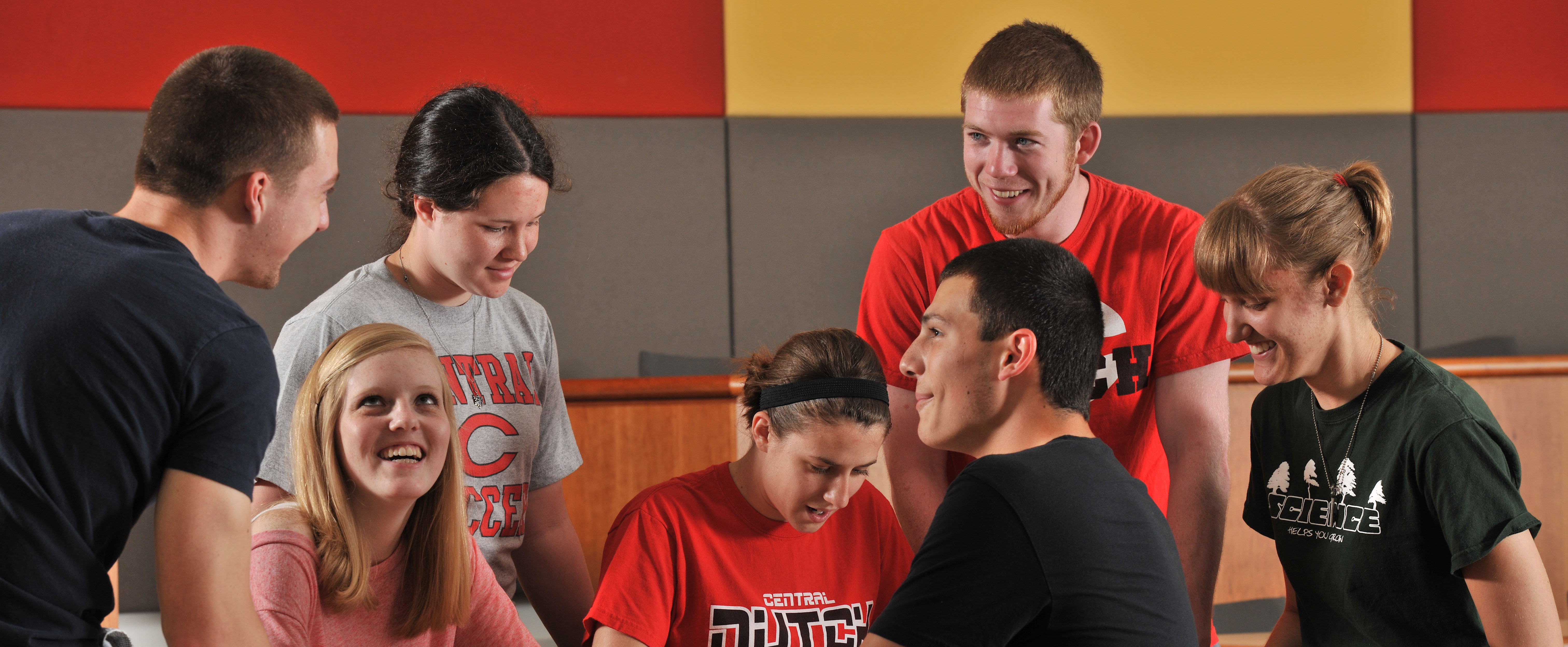 April’s agenda: learning how to set yourself apart from other applicants. May’s: learning the basics of suturing.
April’s agenda: learning how to set yourself apart from other applicants. May’s: learning the basics of suturing.
Every meeting of the newly established Health Professions Club brings excitement as well as helpful information for students majoring in a health related field.
Megan Kittleson, president and co-founder, graduated in May with biochemistry and biology majors and minors in Spanish, physics and psychology. After years of researching potential jobs, Kittleson decided it was time things changed.
“Over the past three years, I realized how much of a struggle it was to research information about health professions. There are many of us doing it alone,” says Kittleson. “I approached Drs. Ellen Du Pre and Nicole Palenske about starting a club that would help students reach their goals.”
Since October 2011, the group has been meeting twice a month to talk about issues in the health sciences. Each meeting has a theme, whether it’s preparing for grad school applications or researching professions in a specific field.
One way of getting students ready for graduate school and doctoral programs is by making professional connections through networking. “We bring in professionals so students get an idea of what it’s like to be in that field,” says Palenske. “Students get to ask themselves, ‘Is this something I want to do?’ and ask questions of people at the top of the field.”
Drs. Thomas ’61 and Barbara Boat visited with members about breaking into the medical field. Thomas Boat is the executive associate dean of clinical affairs and CEO of the University of Cincinnati physicians. Barbara Boat is a licensed clinical psychologist and associate professor in the psychiatry and behavioral neuroscience department at the University of Cincinnati College of Medicine. More than 60 students attended the lecture at 8 a.m. on a Saturday morning.
 The club’s most recent project was hands-on: a suture lab with Dr. Barbara Pettitt ’72, chief of pediatric surgery at Grady Health System in Atlanta, Ga.
The club’s most recent project was hands-on: a suture lab with Dr. Barbara Pettitt ’72, chief of pediatric surgery at Grady Health System in Atlanta, Ga.
Although some of the activities are geared toward pre-med students, Kittleson is quick to state that it is open to students entering any kind of health profession. “The Health Professions Club includes pre-med but also everything from veterinary science and dentistry to athletic science,” says Kittleson. “We facilitate anyone in the health field.”
A highlight of the club is the partnerships between upperclassmen and underclassmen members.
“What’s really positive about the group is the mentorship program,” says Palenske. “Older students are helping underclassmen with courses and study abroad. It helps our students see how different disciplines interact.”
But the underclassmen are not the only ones who benefit. One such student who has gained a lot from the club is senior biology major Deanna Chapline. “The club has been very helpful, especially with information about classes to take, applying to grad school and advice from knowledgeable professors who have been there before,” she says.
Chapline has already felt an impact on her career goals. Knowing that the group was there for one another made her short time with the club even more meaningful.
“This club has made me feel more prepared for my future ambitions, but my favorite thing about the club is that we want to help people through medicine,” Chapline says. “That we are all there for a common cause.”


